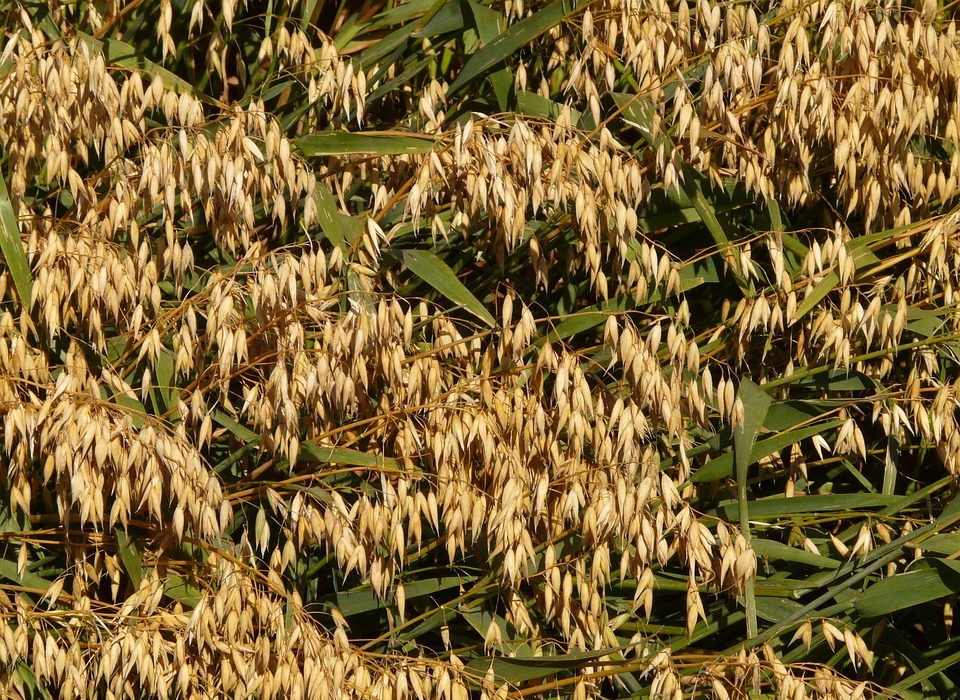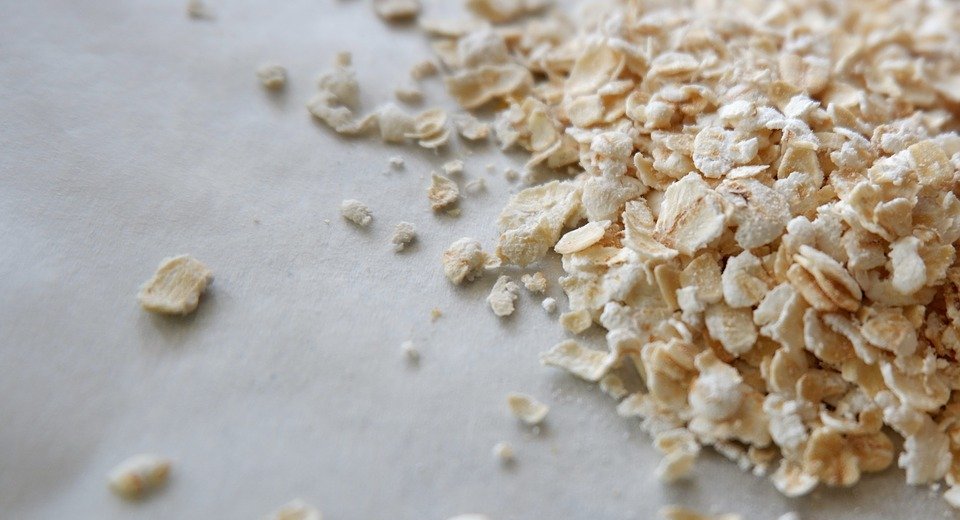This comprehensive guide will explore the question of whether rabbits can eat oats, delving into the nutritional benefits and potential risks associated with this grain. We'll examine the appropriate ways to incorporate oats into your rabbit's diet, and discuss the importance of a balanced and diverse feeding regime for optimal rabbit health.
Part 1: Understanding Rabbit Nutrition

1.1 The Importance of a Balanced Diet
Rabbits are herbivores, and their digestive system is specifically adapted for a diet primarily consisting of high-fibre, low-sugar foods. A balanced diet ensures optimal health, growth, and longevity.
1.2 The Essential Components of a Rabbit Diet
Hay: The foundation of a rabbit's diet should be high-quality hay, providing essential fibre for digestive health, teeth wear, and overall well-being.
Fresh Vegetables: Daily servings of fresh vegetables offer vitamins, minerals, and moisture, contributing to a balanced diet.
Pellets: Limited amounts of high-quality rabbit pellets can supplement the diet, providing essential nutrients, especially for growing rabbits and those with specific health needs.
Treats: Treats should be offered sparingly, as excessive treats can contribute to weight gain and dental issues.
Part 2: Oats in the Rabbit Diet

2.1 Oats: A Potential Treat Option
While not a staple food, oats can be offered as a healthy treat in limited quantities.
2.2 Nutritional Value of Oats
Fibre: Oats contain both soluble and insoluble fibre, aiding digestion and gut health.
Protein: Oats provide moderate protein, contributing to growth and tissue repair.
Vitamins and Minerals: Oats offer B vitamins, iron, zinc, and magnesium.
2.3 Potential Risks of Oats for Rabbits
High Sugar Content: Compared to other grains, oats have a higher sugar content, which can contribute to dental problems, obesity, and other health issues.
Digestive Upset: Excessive oats can cause digestive upset, leading to diarrhoea, bloating, and discomfort.
Nutritional Imbalance: Oats alone cannot provide all the necessary nutrients for a rabbit's balanced diet.
Part 3: Safe Feeding Practices
3.1 Moderation is Key
Oats should be offered as a treat, no more than a few times per week, in small amounts.
3.2 Gradual Introduction
Introduce oats slowly, starting with tiny amounts and observing for any adverse reactions.
3.3 Choosing the Right Oats
Rolled Oats: The most suitable option for rabbits, as they are easier to digest.
Steel-Cut Oats: Less digestible for rabbits and should be avoided or offered only in limited quantities.
Avoid Flavoured Oats: Sugar, flavourings, and other additives are unhealthy for rabbits.
3.4 Safe Preparation Methods
Uncooked: Offer rolled oats uncooked as a treat.
Soaked or Steamed: Soaking overnight softens oats for easier digestion. Steaming is also a suitable preparation method.
Part 4: Alternatives to Oats
4.1 Hay
Timothy Hay: The best choice, providing essential fibre, vitamins, and minerals.
Other Hay Varieties: Meadow hay, orchard grass, and oat hay can be suitable alternatives.
4.2 Fresh Vegetables
Variety is Essential: Offer a diverse selection of fresh vegetables daily.
Safe Vegetable Choices: Leafy greens (dandelion, parsley, kale), root vegetables (carrots, sweet potato), and bell peppers are generally safe.
4.3 Rabbit Pellets
High-Quality Pellets: Choose pellets with low sugar content and appropriate nutritional content.
Limited Quantities: Pellets should complement hay and fresh vegetables, not be the primary food source.
Part 5: Recognizing Signs of Overfeeding
5.1 Digestive Issues
Diarrhoea: Frequent, loose stools.
Bloating: Swollen belly, often accompanied by gas.
Hairballs: Accumulation of fur in the digestive tract, leading to constipation.
5.2 Weight Gain
Increased Body Fat: Noticeable increase in body mass and fat deposits.
Reduced Activity Levels: Loss of energy and enthusiasm.
Changes in Appetite: Increased appetite or overeating despite weight gain.
5.3 Dental Problems
Excessive sugar intake can contribute to dental issues, including overgrown teeth and malocclusion.
Part 6: Addressing Specific Concerns
6.1 Baby Rabbits and Oats
Baby rabbits under 12 weeks old should avoid oats due to their developing digestive system.
6.2 Oats for Rabbits with Specific Health Conditions
If your rabbit has specific health conditions, consult with a veterinarian before incorporating oats into their diet.
6.3 Oats and Dental Health
While oats are a good source of fibre that helps with teeth wear, excessive sugar intake can contribute to dental problems.
Part 7: FAQs
7.1 Can rabbits eat raw oats?
Yes, rabbits can eat raw oats, as long as they are rolled oats and given in moderation.
7.2 How often can I give my rabbit oats?
Oats should be offered as a treat, no more than a few times per week, in small amounts.
7.3 Are oats safe for baby rabbits?
Baby rabbits under 12 weeks old should avoid oats, as their digestive system is still developing.
7.4 Can I give my rabbit oats mixed with other foods?
Yes, you can offer oats mixed with other healthy rabbit foods, such as hay or vegetables.
7.5 Can I give my rabbit oat straw?
Oat straw is a good source of fibre and can be offered to rabbits, but it should not be the primary food source.
7.6 What if my rabbit eats too many oats?
If you suspect your rabbit has eaten too many oats, monitor them closely for signs of digestive upset, such as diarrhoea or bloating. If these symptoms occur, consult with a veterinarian.
7.7 Can I give my rabbit oatmeal?
Plain, unsweetened oatmeal can be offered in small quantities as a treat, but it's essential to avoid oatmeal with added sugar, flavourings, or other additives.
Conclusion
While oats can be a safe and healthy treat for rabbits when fed in moderation, they should not be the primary food source. It's crucial to provide a balanced diet consisting of plenty of hay, fresh vegetables, and a small amount of high-quality rabbit pellets. Always monitor your rabbit's health and adjust their diet accordingly to ensure optimal well-being.
Everyone is watching
-

Do Rabbits Lay Eggs? (The Surprising Truth)
OTHER TYPES OF PETSThis article will unravel the common misconception that rabbits lay eggs, exploring the fascinating world of r...
-

Can Rabbits Eat Grapes? A Guide to Safe Rabbit Treats
OTHER TYPES OF PETSThis comprehensive guide will explore the safety and suitability of grapes for rabbits, providing detailed inf...
-

What's a Group of Rabbits Called? (A Comprehensive Guide)
OTHER TYPES OF PETSThis article delves into the fascinating world of rabbits, exploring the various terms used to describe a grou...
-

Predators That Hunt Rabbits: A Guide to Natural Enemies
OTHER TYPES OF PETSI've always been fascinated by the circle of life, that delicate dance between predator and prey. Growing up ...
-

Are Rabbits Nocturnal Animals?
OTHER TYPES OF PETSThe question of whether rabbits are nocturnal animals is a fascinating one, with a surprisingly complex answer...
